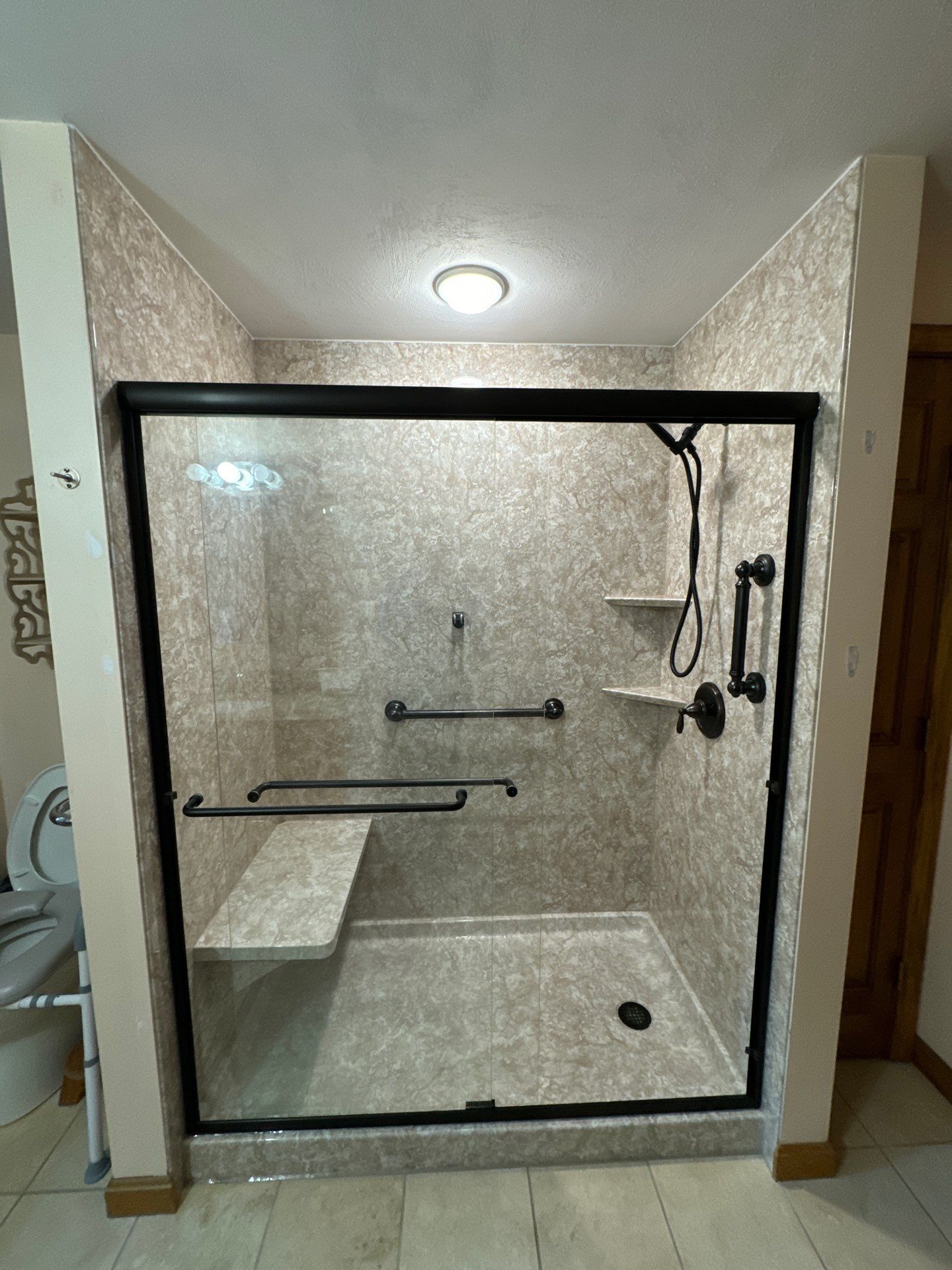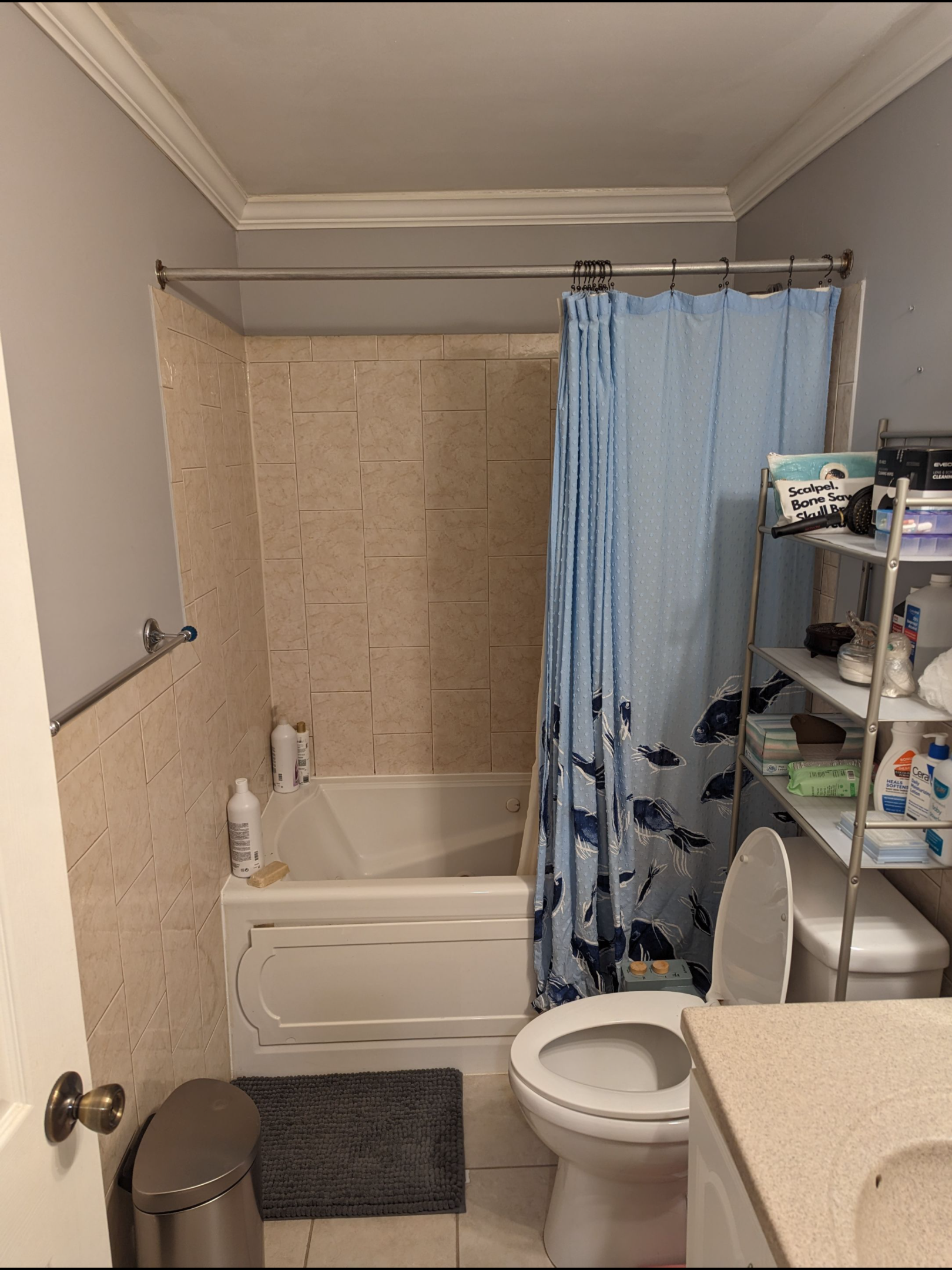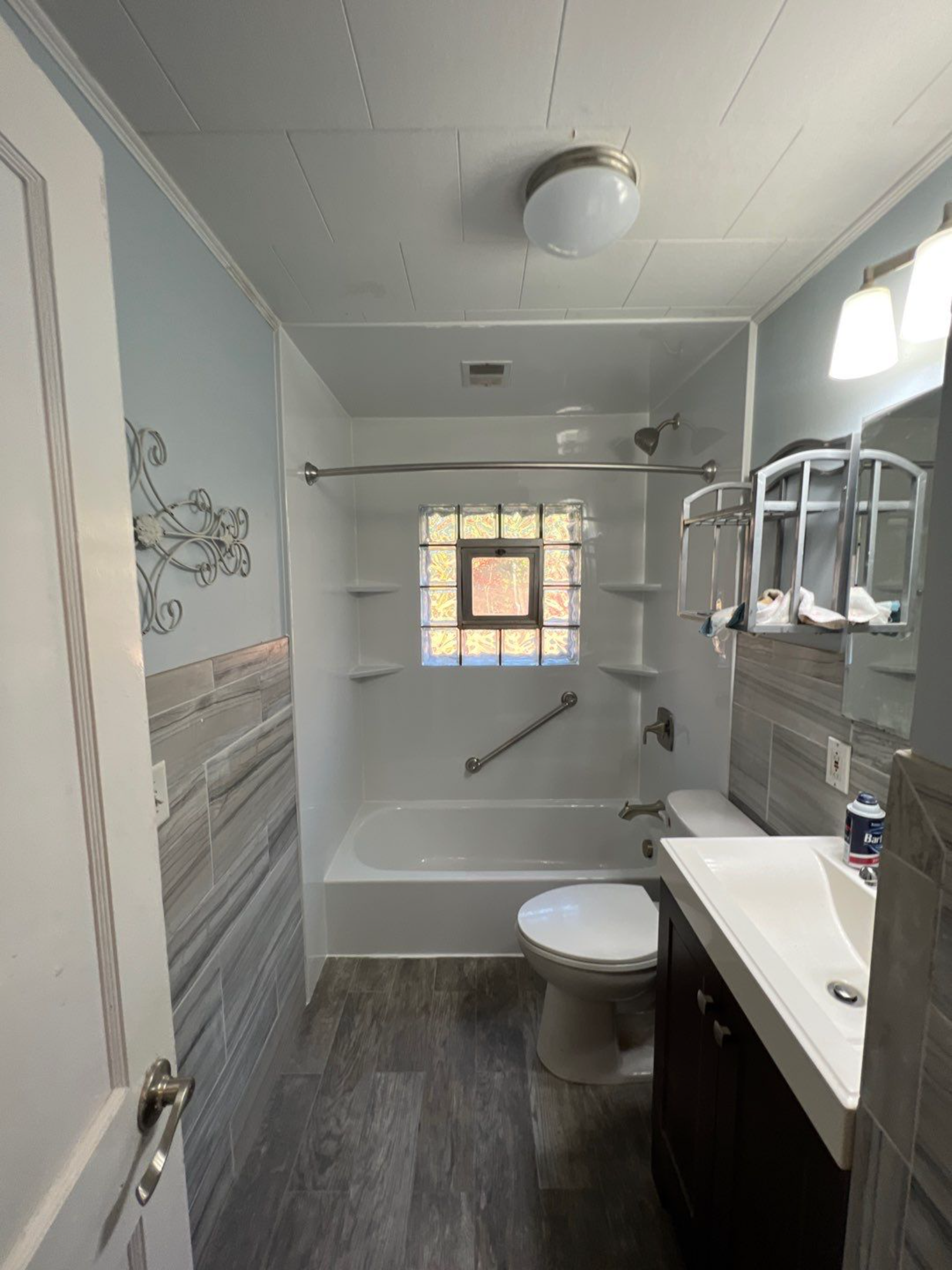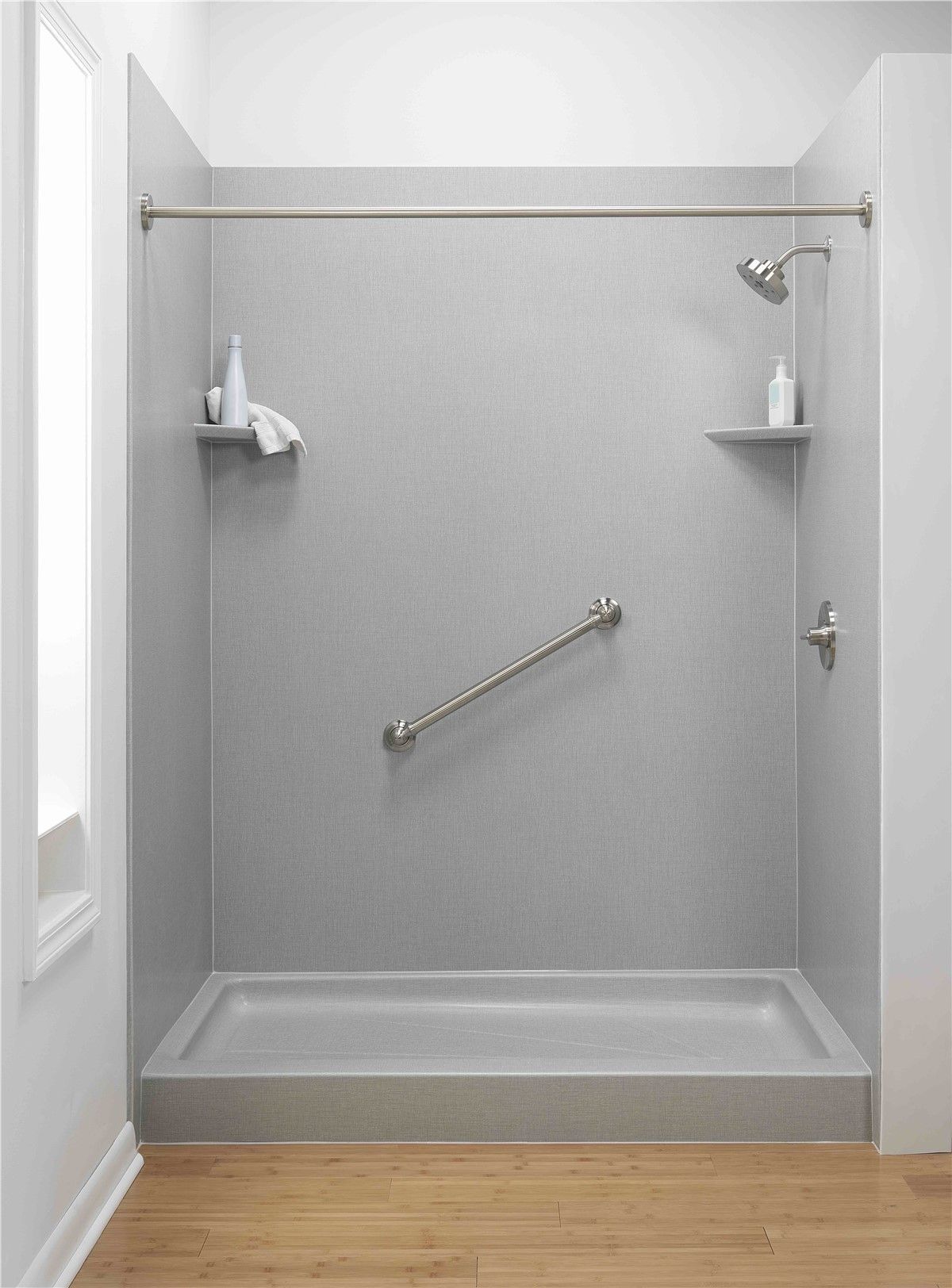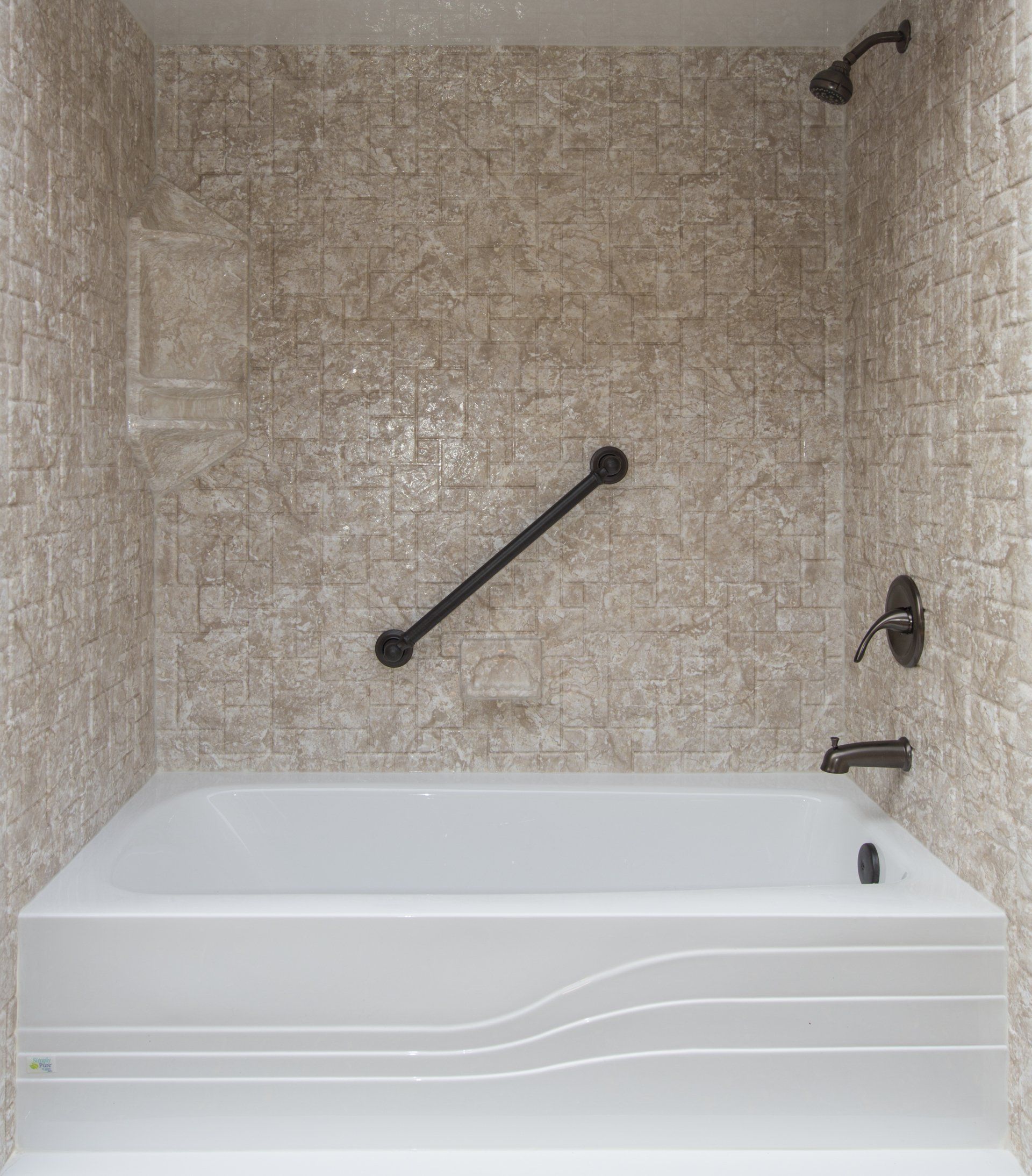Everything You Need to Know About Walk-In Shower Costs: A Comprehensive Guide
Introduction to Walk-In Showers and Cost Considerations
Are you dreaming of upgrading your bathroom with a sleek, modern walk-in shower but wondering about the cost? Well, you're in the right place to start unpacking everything you need to know about the pricing and options for walk-in showers. This kind of renovation not only enhances the aesthetic appeal of your bathroom but can also offer improved accessibility and functionality, making it a worthwhile investment for many homeowners.
Why Choose a Walk-In Shower?
Walk-in showers are increasingly popular in modern homes for several compelling reasons. They offer easy access, minimizing the risk of trips and falls associated with traditional bathtubs, which is especially beneficial for anyone with mobility issues. Additionally, their spacious design can transform a small bathroom by creating a sense of openness and luxury.
But perhaps the most pressing question on your mind is: "How much does a walk-in shower cost?" Let’s dive into the factors that influence the cost of installing a walk-in shower and how you can tailor the project to meet both your dreams and your budget.
Understanding the Cost Elements of a Walk-In Shower
The total cost of a walk-in shower can vary significantly based on several key factors:
- Size and Layout: The size of the shower plays a crucial role in determining the cost. Standard sizes are generally more affordable, but if you're opting for a larger or custom-sized shower, expect the price to increase accordingly.
- Materials Used: The choice of materials has a major impact on cost. Common materials for walk-in showers include tiles, acrylic, and fiberglass. Each material comes with different price points and durability considerations.
- Type of Installation: Whether you choose a prefab (pre-fabricated) unit or a custom build will affect your costs. Prefab units are often more budget-friendly and easier to install, whereas custom units are designed to fit specific dimensions and can include a variety of personalized features.
- Labor and Installation: The complexity of the installation and the local labor rates will also play a significant role in the final cost. This includes any additional work like demolition, plumbing adjustments, and the installation of accessories.
In the following sections, we will break down these costs more thoroughly, giving you a detailed look at what you can expect to spend and how to manage your budget effectively for a walk-in shower installation. Whether you're considering a simple, functional design or a luxurious spa-like retreat, understanding these factors will help you make informed decisions that align with your financial and lifestyle goals.
Detailed Cost Breakdown by Size and Installation Type
When considering the addition of a walk-in shower to your bathroom, understanding how size and installation type influence the cost is essential. These factors can dramatically affect the overall budget of your bathroom remodeling project.
Walk-In Shower Cost by Size
The size of the walk-in shower plays a pivotal role in the overall cost. Here's a breakdown of how dimensions impact the price:
- Standard Sizes: Typically, the most common sizes for walk-in showers are 32 by 32 inches or 36 by 36 inches. These sizes are generally more affordable due to their conformity to standard specifications, which reduces the complexity and cost of installation. Prices for standard-sized walk-in showers can range from $1,000 to $3,000, depending on the materials and fixtures you choose.
- Custom Sizes: For those needing larger sizes or specific shapes to fit unique bathroom layouts, custom walk-in showers are the way to go. Custom sizes will cost more, as they require more materials and labor. The cost can vary widely, starting at around $3,500 and can go up to $10,000 or more, particularly if you opt for high-end finishes and unique designs that require detailed tile work and specialized craftsmanship.
Walk-In Shower Cost by Installation Type
Choosing between a prefabricated unit and a custom installation is another major decision that will influence your budget:
- Prefabricated Walk-In Showers: These are manufactured off-site and delivered ready to install, which can significantly reduce labor costs and installation time. A basic prefab walk-in shower can cost anywhere from $700 to $3,000. These units are ideal for those looking for a cost-effective and straightforward installation. They come in limited styles and sizes but are generally sufficient for most standard bathroom layouts.
- Custom Walk-In Showers: Custom installations offer a higher level of personalization and adaptability. Whether you need a shower that fits an irregular space or you desire specific features like multiple shower heads, benches, or niche shelves, custom showers can be tailored to your exact specifications. However, this customization comes at a higher price, typically ranging from $4,200 to $8,500, depending on the complexity and the materials used.
Additional Installation Considerations
- Labor Costs: Installation costs can vary depending on the complexity of the project and local labor rates. Custom projects typically require skilled tradespeople who command higher rates due to the expertise required, especially for tasks like custom tiling and plumbing adjustments.
- Plumbing Requirements: Sometimes, installing a new walk-in shower requires significant changes to existing plumbing, which can increase the cost. If new lines need to be run or existing fixtures relocated, this will add to the overall expense.
Understanding these cost factors will help you plan your project more effectively and make choices that align with your budget and bathroom renovation goals. In the next part, we'll delve into the costs associated with different materials and hardware options for walk-in showers, providing you with further insights to guide your decision-making process.
Material and Hardware Costs for Walk-In Showers
In this section of our guide, we'll explore the variety of materials and bathroom hardware that can affect the overall cost of your walk-in shower installation. The choices you make here not only influence the aesthetics and durability of your shower but also play a significant role in the overall budget.
Material Options for Walk-In Showers
The selection of materials for your walk-in shower walls and base can vary widely in cost and appearance:
- Tile: One of the most popular choices for walk-in showers, tile offers versatility in terms of design and price. Costs for tile can range from $2 to $17 per square foot, depending on the type (ceramic, porcelain, stone, etc.). Labor costs for tile installation can add significantly to the expense, especially for intricate designs and larger areas.
- Acrylic and Fiberglass Inserts: These materials offer a budget-friendly and low-maintenance alternative to tile. Acrylic and fiberglass are typically used in prefabricated shower units and can range in cost from $500 to $2,000. These materials are durable, easy to clean, and quick to install, making them a popular choice for those looking to minimize labor costs.
- Marble and Higher-End Stones: For a more luxurious finish, materials like marble can elevate the look of your walk-in shower but at a higher cost. Marble typically ranges from $40 to $65 per square foot for materials alone, with labor costs adding an additional $700 to $2,450 depending on the project size and complexity.
Bathroom Hardware Considerations
The choice of shower heads, faucets, and other hardware can also impact the cost:
- Shower Heads and Faucets: Prices can vary widely based on the design, material, and brand. A basic shower head and faucet set can start at around $50, with high-end models reaching up to $1,000, including installation.
- Additional Features: Extras such as built-in seating, multiple shower heads, digital controls, and custom niches for shampoos and soaps can add convenience and luxury but also increase the cost.
Cost-Saving Tips for Materials and Hardware
To keep your walk-in shower project within budget, consider these tips:
- Compare Material Costs: Research and compare different materials to find a balance between cost and quality. Sometimes, opting for high-quality imitation materials can give you the luxurious look you desire without the high price tag of natural stone.
- Choose Standard Hardware: While it's tempting to go for high-end fixtures, standard shower heads and faucets can often provide the same functionality at a fraction of the cost. Look for well-reviewed brands that offer reliability and style without the premium price.
- Bulk Purchasing: If you’re handling the procurement of materials yourself, buying in bulk can sometimes reduce costs. This is especially true for tiles and hardware if you’re renovating more than one bathroom.
Understanding these material and hardware options will help you make informed decisions that align with both your aesthetic preferences and budget constraints. In the next section, we'll cover the labor costs and the importance of professional installation for your walk-in shower project. Stay tuned to learn more about managing installation expenses and ensuring a successful bathroom upgrade.
Labor Costs and Professional Installation for Walk-In Showers
Installing a walk-in shower involves several complex steps that can significantly impact the overall cost. Understanding the labor costs associated with this project is essential for budgeting and ensuring a successful installation.
Labor Costs for Walk-In Shower Installation
Labor costs can vary widely depending on the region, the complexity of the installation, and the level of expertise required. Here's what you can expect:
- Basic Installation: For prefabricated walk-in showers, the installation process is generally simpler and quicker, which can keep labor costs lower. On average, you might expect to pay between $400 to $1,000 for the installation.
- Custom Installation: Custom walk-in showers require more detailed work, including tile cutting, custom fitting, and potentially altering plumbing fixtures. These factors can increase labor costs, with prices ranging from $1,500 to $4,000 or more, depending on the scope and complexity of the project.
The Importance of Professional Installation
While DIY options are available, professional installation is recommended for several reasons:
- Quality and Safety: Professionals ensure that the shower is installed correctly, which is crucial for preventing leaks and ensuring long-term durability. Proper installation is especially important for custom tile work, where improper installation can lead to water damage and costly repairs.
- Plumbing Adjustments: Walk-in showers often require modifications to existing plumbing. Professionals can handle these adjustments efficiently, ensuring compliance with local building codes and standards.
- Time Efficiency: A professional can complete the installation much faster than an amateur, minimizing disruption to your daily routine.
Tips for Hiring a Professional Installer
To ensure you hire the right professional for the job, consider the following tips:
- Get Multiple Quotes: Don’t settle for the first estimate you receive. Instead, get multiple quotes to compare prices and services. This will help you find the best balance of price and quality.
- Check References and Reviews: Look at past work and read customer reviews. A reputable contractor should have a solid track record of quality installations and positive feedback from previous clients.
- Verify Licenses and Insurance: Ensure that any contractor you hire is licensed and insured. This protects you in case of accidents or damage during the installation process.
- Discuss Your Vision and Budget: Be clear about your expectations and budget constraints. A good contractor will help you find solutions that fit your aesthetic preferences and financial limits.
Understanding the labor costs and the importance of professional installation will help you manage the financial aspects of your walk-in shower project more effectively. Investing in professional services ensures that your new shower is installed correctly and remains a valuable addition to your home for years to come.
Lastly, we will discuss additional costs to consider and provide final tips on how to maximize the value of your walk-in shower installation. Stay tuned to complete your comprehensive guide to walk-in shower costs.
Additional Costs and Final Considerations for Walk-In Shower Installation
As we wrap up our comprehensive guide to walk-in shower costs, it's essential to address the additional expenses and final considerations that can influence the total investment of your bathroom renovation. This part will help you understand all the potential costs involved and provide tips to ensure you get the most value out of your new walk-in shower.
Additional Costs to Consider
Beyond the basic costs of materials and labor, several other expenses can affect the final price of installing a walk-in shower:
- Demolition and Removal: If you're replacing an old bathtub or shower, there will be costs associated with demolition and disposal of the existing fixtures. This can range from $50 to $300 depending on the size and material of the old unit.
- Waterproofing: Proper waterproofing is crucial to prevent leaks and water damage. This can involve the installation of a waterproof membrane, which might cost an additional $200 to $800, depending on the size of the shower and the products used.
- Permits: Depending on your locality, you may need to obtain a permit to remodel your bathroom, especially if plumbing is involved. The cost of permits can vary widely but generally range from $50 to $500.
- Custom Features: Features like custom glass doors, luxury fixtures, built-in benches, or special lighting can significantly increase the cost. For example, a high-quality glass shower door can add anywhere from $500 to $1,500 to the overall cost.
Maximizing Value
To ensure that your investment in a walk-in shower adds value both to your life and to your home, consider these tips:
- Focus on Accessibility: Incorporating features that enhance accessibility, such as grab bars, a zero-entry design, or non-slip flooring, can make your bathroom safer and more appealing to a broad range of buyers if you ever decide to sell your home.
- Choose Durable Materials: Opt for materials that not only look great but are also known for durability and ease of maintenance. Porcelain tile, for example, is more durable and easier to clean than natural stone, which might require more maintenance.
- Consider Energy and Water Efficiency: Installing water-efficient fixtures like low-flow shower heads can reduce your water usage and appeal to environmentally conscious buyers. This can also help save on your utility bills.
- Get Professional Advice: If you're unsure about design decisions or technical aspects of the installation, consulting with a professional designer or contractor can help you make informed choices that align with your needs and budget.
Investing in a walk-in shower can transform your bathroom into a more functional, accessible, and aesthetically pleasing space. By understanding all the costs involved—from materials and labor to additional expenses and custom features—you can plan your project effectively to achieve the best possible outcome within your budget.
Remember, the key to a successful bathroom renovation is planning, budgeting, and choosing the right professionals to bring your vision to life. With this detailed guide, you're now equipped to make informed decisions and enjoy the benefits of your new walk-in shower for years to come.
Blog
